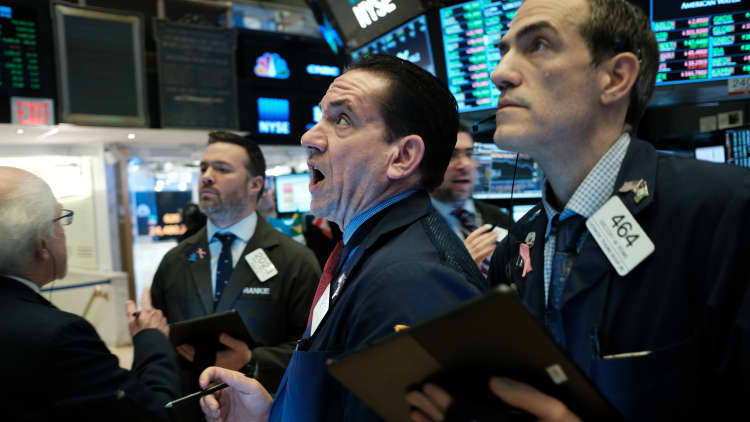
Could more stimulus stem the coronavirus chaos?
That's what many on Wall Street were asking — and, in some cases, affirming — as U.S. stocks staged a comeback toward the end of Tuesday's volatile trading session. Monday marked the Dow Jones Industrial Average and S&P 500's biggest one-day percentage losses since the depths of the financial crisis in 2008.
But not all commentators are convinced, with some warning that the market's recent action is a precursor to recession.
Here's what three of them, including CNBC's Jim Cramer, said about the market on Tuesday:
Coronavirus stocks bounce
Cramer, host of "Mad Money," said the positive action and the possibility of federal intervention made him feel "marginally better" about the state of the market and the U.S. economy:
"I think that one of the things that made things really better today is that this was a recognition that things have to be done, and that was very reassuring. That could be like [former Federal Reserve Chairman Ben] Bernanke when he realized, 'Look, I've got to start cutting rates,' so, I'm not saying, 'Go buy [stocks] off this.' But the fact is that they're putting things in place. They're going to stagger them just in case things are bad and get worse. I don't know. It's something."
CNBC's David Faber: Is it enough for you to feel more comfortable buying stocks after yesterday's crushing blows to certain sectors? I'm thinking, obviously, energy and, to a lesser extent but not insignificant, the banks.
Cramer: "Yes. Yes it is. I think energy was ... really bad. I go over a lot of the banking balance sheets and they really learned a lesson in 2016 when it comes to nonperformers. ... Now, if you're buying up 8%, people say, 'Thanks for nothing.' I never do that. You know I don't buy the up opens. But do I feel marginally better about it? Yeah. I mean, this is what I wanted."
Coronavirus recession ahead?
Alicia Levine, chief strategist at BNY Mellon Investment Management, wasn't embracing the optimism quite yet.
"What [Monday] was was starting to price in the recession — the actual recession, not the fear of recession, but the actual recession driven by lower inflation expectations, a collapse of oil investment in this country and, really, the fear of where this is going in the real economy on the demand side. So, before we had the supply shock problem, and now, we have the demand problem as schools close and municipalities start to really curtail what people are doing. … The announcement from the White House [Monday] and the suggestion there might be some action with Congress would be extraordinarily helpful here on the sentiment side. I suspect this is part of the process of bottoming and not the bottom, meaning we're going to have a lot of chop here. There's a lot of chop because the news is not all out. We discussed this before. There's a lot of bad news still in front of us, and so you're going to see chop. [Monday's] bottom was a reasonable place to go if you look at all the technical levels, but we also went through some technical levels as well. So, you have to start pricing in, if we have a recession and if we have a 15% earnings decline, where's the rational place for the market to be? And it's lower than [Monday's] low."
Fed rate cut realities
David Zervos, chief market strategist at Jefferies, said that even if the Fed pushes interest rate yields down to 0%, it could help buoy markets:
"I would take a slightly different interpretation of the price action. I mean, the bond market price action, to me, was really pricing in a move to the zero lower bound, that … the Fed is going to be at zero with a very high probability in the next maybe three to five weeks, maybe even sooner. Certainly, I'd say, after the March meeting, there's a really good probability of that with another intermeeting cut if things get worse. And the stock market … doesn't know how to exactly deal with that because if there is an aggressive stimulus coming in and an aggressive response from the Fed and we get fiscal responses like something in small-business lending, something in tax cuts, then we might be able to skirt through this and the S&P can kind of flirt around with this 3,000 area and not have to go down to 2,500 or 2,300, which would probably be much more consistent with a recession area. So, I'm not sure that I interpret this as pricing in a recession. I think what Monday was about is really sort of almost front-running Fed policy and thinking about the Fed coming on board quickly."






